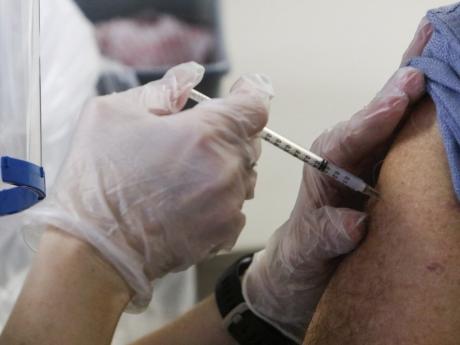UN: COVID-19 herd immunity unlikely in 2021 despite vaccines
GENEVA (AP) — The World Health Organization’s chief scientist warned that even as numerous countries start rolling out vaccination programs to stop COVID-19, herd immunity is highly unlikely this year.
At a media briefing on Monday, Dr. Soumya Swaminathan said it was critical countries and their populations maintain strict social distancing and other outbreak control measures for the foreseeable future.
In recent weeks, Britain, the US, France, Canada, Germany, Israel, the Netherlands and others have begun vaccinating millions of their citizens against the coronavirus.
“Even as vaccines start protecting the most vulnerable, we’re not going to achieve any levels of population immunity or herd immunity in 2021,” Swaminathan said.
“Even if it happens in a couple of pockets, in a few countries, it’s not going to protect people across the world.”
Scientists typically estimate that a vaccination rate of about 70% is needed for herd immunity, where entire populations are protected against a disease.
But some fear that the extremely infectious nature of COVID-19 could require a significantly higher threshold.
Dr Bruce Aylward, an adviser to WHO’s director-general, said the UN health agency was hoping coronavirus vaccinations might begin later this month or in February in some of the world’s poorer countries, calling on the global community to do more to ensure all countries have access to vaccines.
“We cannot do that on our own,” Aylward said, saying WHO needed the cooperation of vaccine manufacturers in particular to start immunising vulnerable populations.
Aylward said WHO was aiming to have “a rollout plan” detailing which developing countries might start receiving vaccines next month.
Still, the majority of the world’s COVID-19 vaccine supply has already been bought by rich countries.
The UN-backed initiative known as COVAX, which is aiming to deliver shots to developing countries is short of vaccines, money and logistical help as donor countries scramble to protect their own citizens, particularly in the wake of newly detected COVID-19 variants in Britain and South Africa, which many officials are blaming for increased spread.
WHO, however, said that most of the recent spikes in transmission were due to “the increased mixing of people” rather than the new variants.
Follow The Gleaner on Twitter and Instagram @JamaicaGleaner and on Facebook @GleanerJamaica. Send us a message on WhatsApp at 1-876-499-0169 or email us at onlinefeedback@gleanerjm.com or editors@gleanerjm.com.

